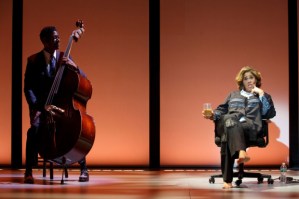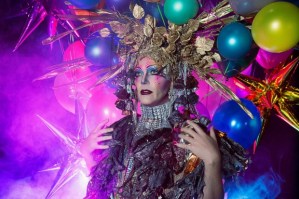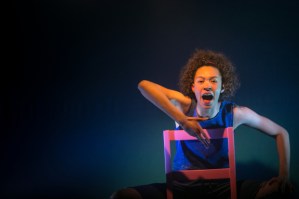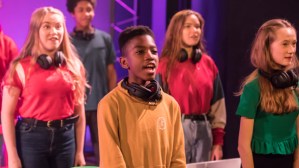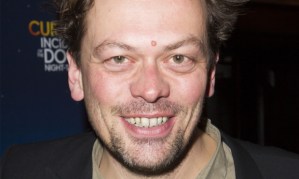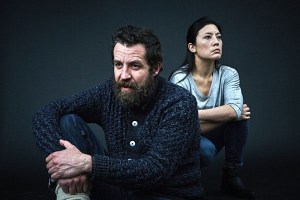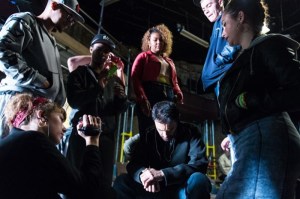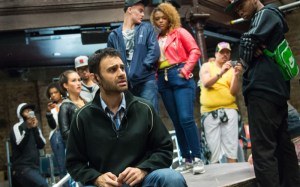Too often, verbatim theatre forgets to be theatre
Matt Trueman on why verbatim theatre pieces must do more than journalism or documentary
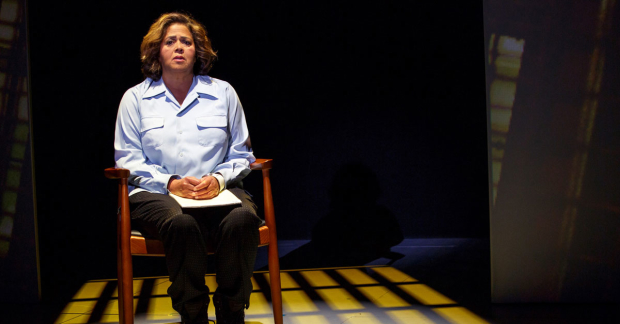
© Joan Marcus
If I had my way, verbatim would be 'verboten'. The idea of speaking real words onstage, whether interviews or transcripts, once had real political bite. It changed our sense of what might count as a script, and refreshed theatre's relationship with reality. I'm not sure it does today. Too often, verbatim theatre forgets to be theatre.
Flicking through the Edinburgh Fringe programme, I was struck by the volume of verbatim work. Festivalgoers can take their pick of porn stars and politicians, drug users and social media addicts, young mothers and old age pensioners. Trans testimonials and refugee voices get several shows apiece. Name a demographic. Chances are someone's stuck a dictaphone in their faces.
Verbatim has become the go-to form of political theatre since it rose to prominence in the early noughties. Truth is, nowadays, real words aren't enough. Some of these shows will, doubtless, be sharp and searing. LUNG's Trojan Horse, for example, promises an in-depth examination of reported extremism in Birmingham schools. Most will do little more than survey their subject, shaping a smattering of opinion into some kind of argument. Verbatim might as well mean vox pops.
Verbatim theatre has to be more than journalism
Verbatim theatre rests on the fact that the stage is a public space. Whether exposing a closed-off civic process to wider public scrutiny, as in the now renamed Tricycle's tribunal stagings, or examining an issue or an event through actual expertise and direct experience, it uses the stage, first and foremost, as a platform. Increasingly, as in My Country – the National's response to the EU Referendum – it is being used to open theatre up to include voices outside of it: a space that makes the unheard heard, taking their words and placing them in actors' mouths.
However, the stage is not the only public platform. Televisions, newspapers and social media feeds can all fulfil that function and, the moment theatremakers use the stage solely as such, they might as well make something else. Verbatim theatre has to be more than journalism. It must do more than a documentary. Otherwise, why not let people speak for themselves? Give them space instead of taking their words.
The moment verbatim theatre forgets that it's theatre, the issues with the form – the editorial hand, the interviewer-interviewee imbalance, the violence of appropriating the voices of others – become all the more apparent for going unacknowledged.
Thank heavens, then, for Anna Deavere Smith. She pioneered the form back in the early nineties, with two reflections on two race riots Fires in the Mirror and Twilight: Los Angeles, 1992. Notes from the Field, a deep dive into race relations in the US today that's playing as part of LIFT, proves she's still a master of it. Why? Because she makes the act of performing, the art of theatre, count.
Yes, Deavere Smith's skill is staggering but it is the very act of transformation that counts
Powerful as it is, Deavere Smith's material isn't what makes Notes from the Field so potent. Neither is the shape of her argument, which opens out from specifics about prison, protests, and public schools to a broader, historical sense of her subject. It's her form.
It matters that Deavere Smith's shows are all solos – and not just because she gives a towering, shapeshifting tour de force. Yes, her skill is staggering – the way she rearranges her whole person, body and voice, to fit each interviewee – but it is the very act of transformation that counts. It is inherently and markedly theatrical: actor and character are both visible.
Deavere Smith is always herself – and not. Herself as congressman John Lewis, activist Kevin Moore, this student, that lawyer. She embodies her subjects, stands in for them and, in compressing all these real people into a single body, she stresses their common humanity, while simultaneously emphasising their differences – the ways they speak, the ways they hold themselves. She literally steps into each person's shoes. To embody is to empathise.
Her performance is the ultimate leveller. In taking these individuals on, Deavere Smith puts them all on a plane, so there's no privileging a white judge over a black protestor, no dismissing an inarticulate, emotive expression over a cool, calm, considered one. Each carries weight – and, unlike offstage, equally so. Onstage, in Anna Deavere Smith, we hear them all fully, and in their own words.
Verbatim theatre has to ensure as much, and it can only do so by stressing its own theatricality. Alecky Blythe's recorded delivery does it, as actors attempt to echo the speech patterns in their ears. She wrote herself into Little Revolution, and let Adam Cork's music make everyday speech lyrical in London Road. Chris Goode's Monkey Bars, which put children's words into adults' mouths, made grown-ups look ludicrous and took its young subjects seriously. Stand, about acts of personal politics, gave space to its subjects' stories in full, pointedly standing back to let others speak. DV8 fuse testimonials and dance, juxtaposing spoken words with non-literal movement.
These shows are so much more than mere surveys. More than speaking on others' behalves, they transform their words with theatricality, and so make audiences listen altogether anew.



